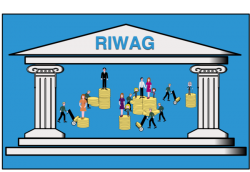Projects
Ageing workers in the Austrian labour market - Linked Employer-employee Data Analysis
Project Leader: Alexia Fürnkranz-Prskawetz
Facing an ageing and shrinking workforce it is key to understand the productivity of older workers and to identify firm characteristics that allow older workers productivity not to decline, in particular so in times of accelerated digitalization and automation. Within LEDA we analyze the relationship between the age structure of the workforce and labor productivity/wages at the firm level in Austria drawing on a panel data set from 2009 to 2021 that will be built up within the Austrian Micro Data Center (AMDC).
Project Details
Acronym: LEDA Funding Body: Austrian Academy of Sciences Project Number: DATA_2023-36_LEDA
Time Frame: 01.06.2024-31.05.2026
Biological, Individual and Contextual Factors of Fertility Recovery
Project Leader: Eva Beaujouan
Fertility is increasingly determined by the desire and ability to have children at later reproductive ages. This ERC consolidator grant explores the biological, individual and contextual factors related to fertility in the countries where childbearing is being delayed, with an emphasis on ages 30 and above. It links these factors to today’s and tomorrow’s cohort fertility levels.
Picture: (c) Maddalena Carrai for RIVA Illustrations
Project Details
Acronym: BIC.LATE Funding Body: ERC (CoG) - Horizon 2020 Project Number: 101001410
Time Frame: 01.09.2021 - 30.08.2026
Consequences of Divorce: Heterogeneity by Duration and Gender
Project Leader: Caroline Berghammer
This project investigates the consequences of divorce and partnership dissolution, focusing on economic resources, residential mobility, and re-partnering. It aims to address social inequality and inform social policy by comparing these consequences across different population groups. The project focuses on Austria, a conservative country with traditional gender roles in (western) European comparison.
Project Details
Acronym: CONDIV Funding Body: Austrian Academy of Sciences Project Number: DATA_2023-09_CONDIV
Time Frame: 01.07.2024-30.06.2026
Globale Krisen und deren Auswirkungen auf persönliche Lebensbereiche von Menschen in Wien
Project Leader: Isabella Buber-Ennser
The aim of the project is to investigate the effects of current global crises on the personal lives of Viennese people and to compare them with the assessments of people in Austria as a whole. Based on GGS-data collected between the end of 2022 and the beginning of 2023, the goal is to investigate the extent to which recent price increases, the COVID-19 pandemic, and the war in Ukraine have led to perceived stress. In addition, this project will examine the changes in the desire to have children due to these global crises. The target group is women and men in young and middle adulthood.
Project Details
Acronym: KriLebWie Funding Body: City of Vienna, MA 7 Time Frame: 01.10.2023-31.03.2025
Families and inequality in a flexible world of work
Project Leader: Caroline Berghammer
This project uses international time-use data and other data sources to investigate the role of flexible working (working from home, flextime) for family time (time with children and partner) and gender equality in the distribution of paid and unpaid work in couples.
Project Details
Acronym: FLIN Funding Body: European Research Council Executive Agency Project Number: 101125392 - ERC-2023-COG
Time Frame: February 2025 – January 2030
Population Dynamics under Global Climate Change
Project Leader: Raya Muttarak
Population and climate change are intricately linked. This ERC project aims to unpack these complexities by undertaking a comprehensive study of how changing climate impacts population trends.
Project Details
Acronym: POPCLIMA Funding Body: ERC (CoG) - Horizon 2020 Project Number: 101002973
Time Frame: 01.01.2022-31.12.2026
Reducing inequality within and across generations
Project Leader: Miguel Sánchez-Romero
This project aims to provide a unified framework for studying and mitigating the economic and demographic consequences of increasing inequality in European countries, also considering the aftermath of the 2008 recession and the Covid19 pandemic.
Project Details
Acronym: RIWAG Funding Body: OeNB Anniversary Fund Project Number: 18744
Time Frame: March 2022 - August 2024
Skill loss during parental leave and its role for gender disparities in earnings
Project Leader: Sonja Spitzer
The Skill-PAL project provides a missing puzzle piece for understanding the persistent gender disparities in earnings. It investigates the impact of child-related career interruptions on work-related skills and explores if human capital depreciation during extended parental leave contributes to the gender wage gap. The project is highly relevant in light of demographic change and growing skilled labour shortages, and will further provide important insights for shaping parental leave policies.
Project Details
Acronym: Skill-PAL Funding Body: Austrian Academy of Sciences Project Number: DATA_2023-39_Skill-PAL
Time Frame: 01.07.2024-30.06.2026
Sustainable Welfare: Rethinking the roles of Family, Market and State
Project Leader: Alexia Fürnkranz-Prskawetz
SUSTAINWELL addresses the long-term socio-economic impact of population ageing on European society. SUSTAINWELL aims will be to identify: (i) opportunities arising from longer and healthy life expectancy and in general from the silver economy; (ii) resilient responses from individuals and households (in market and non-market outcomes) and from other actors in society facing the challenges posed by ageing; (iii) the impact of ageing on inequality (both within and between generations), knowing that social cohesion is crucial to face the ageing challenge; (iv) gender and lifecycle balanced policies helping the sandwich-generation to sustain baby-boomers entering retirement, without decreasing fertility nor investment in education. This project is coordinated by Ció Patxot, Universitat de Barcelona.
Project Details
Acronym: SUSTAINWELL Funding Body: European Commission, HORIZON-CL2-2022-TRANSFORMATIONS-01 Project Number: 101095175
Time Frame: 01.02.23 -31.01.27
The Wittgenstein Centre aspires to be a world leader in the advancement of demographic methods and their application to the analysis of human capital and population dynamics. In assessing the effects of these forces on long-term human well-being, we combine scientific excellence in a multidisciplinary context with relevance to a global audience. It is a collaboration among the Austrian Academy of Sciences (ÖAW), the International Institute for Applied Systems Analysis (IIASA) and the University of Vienna.









